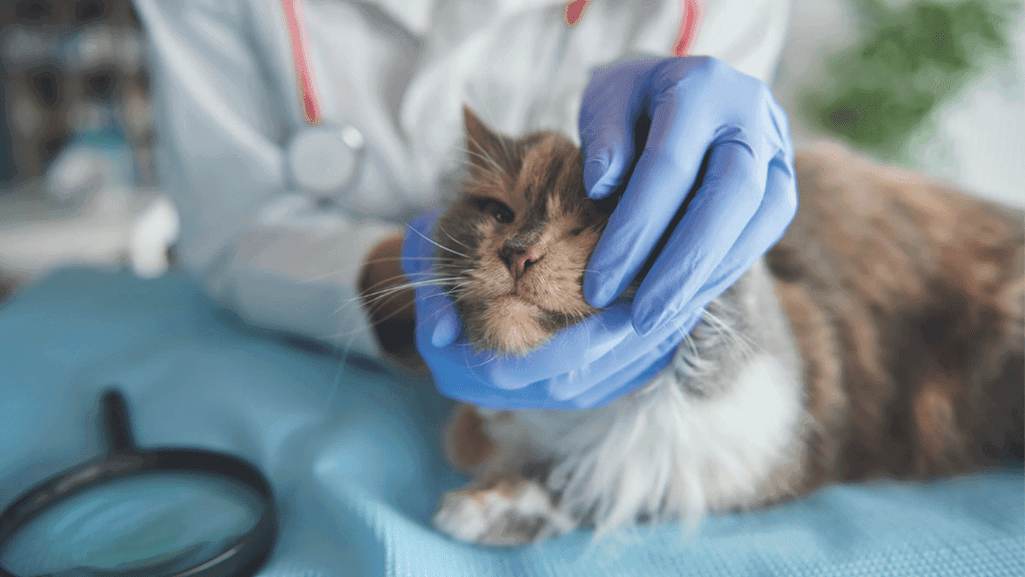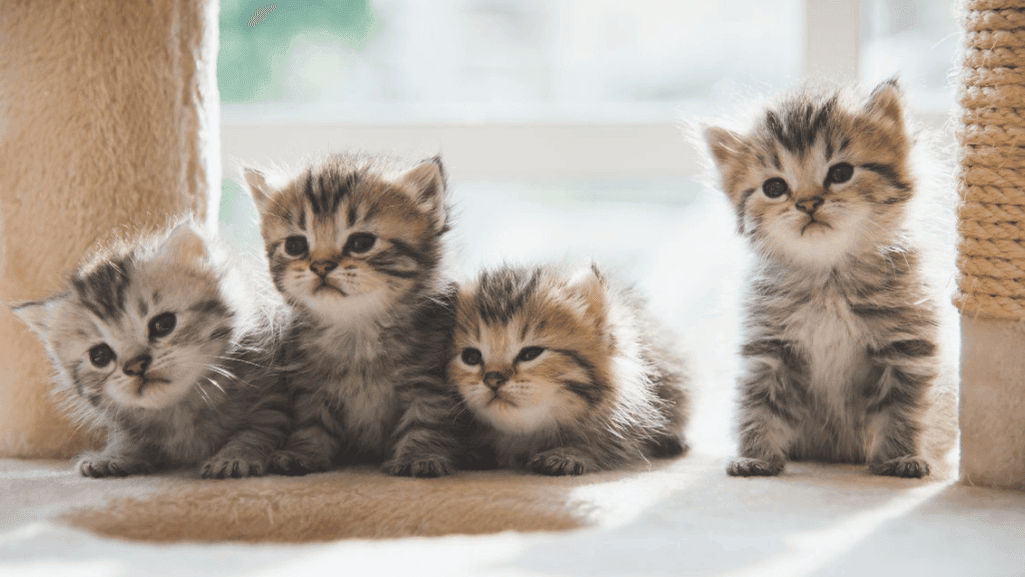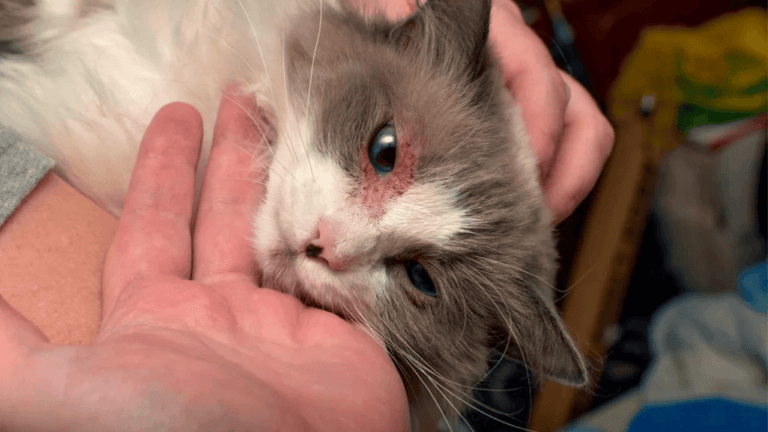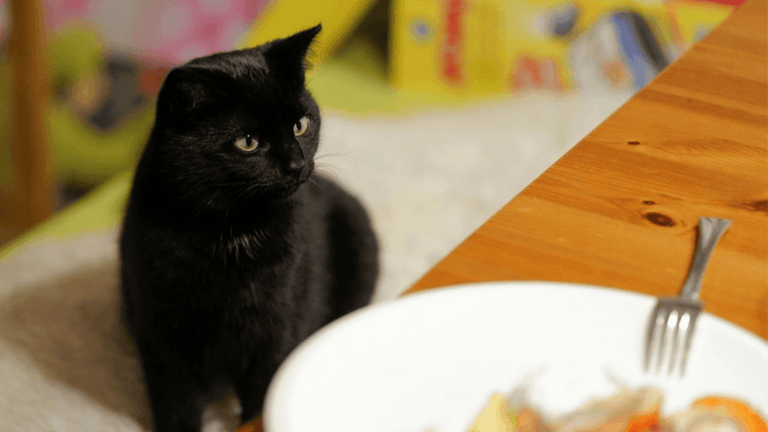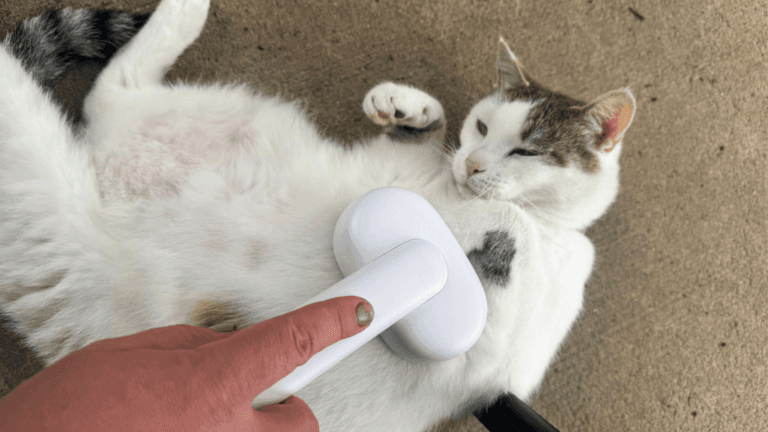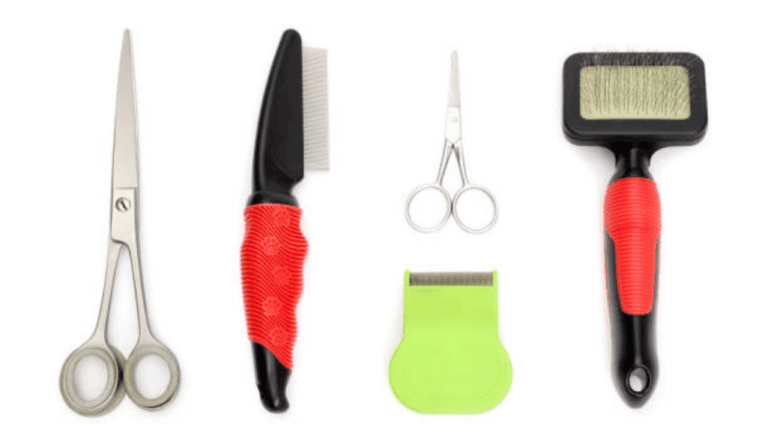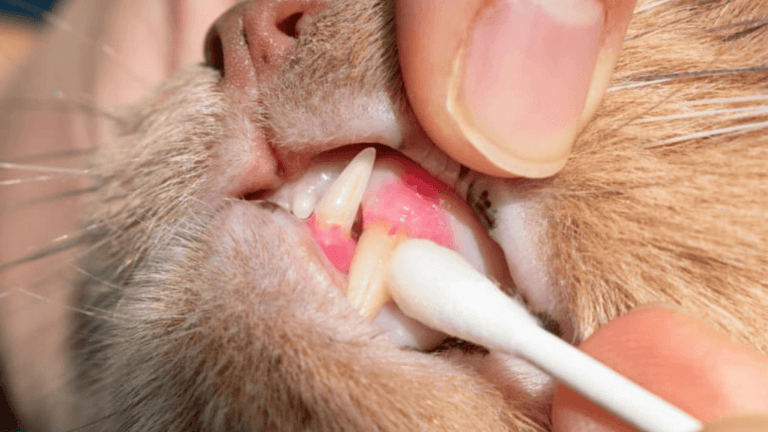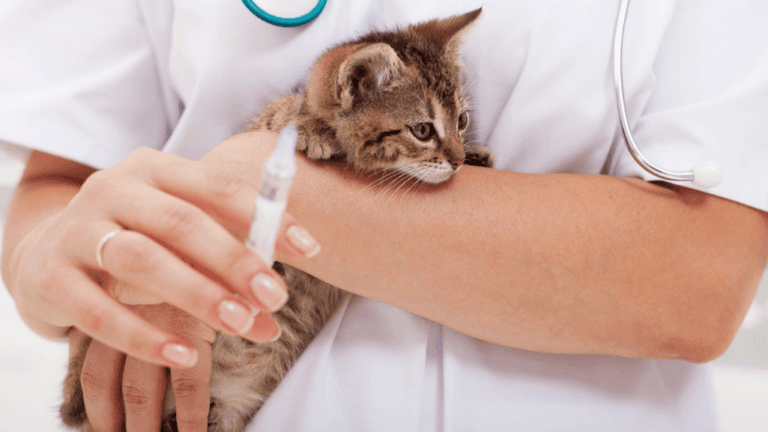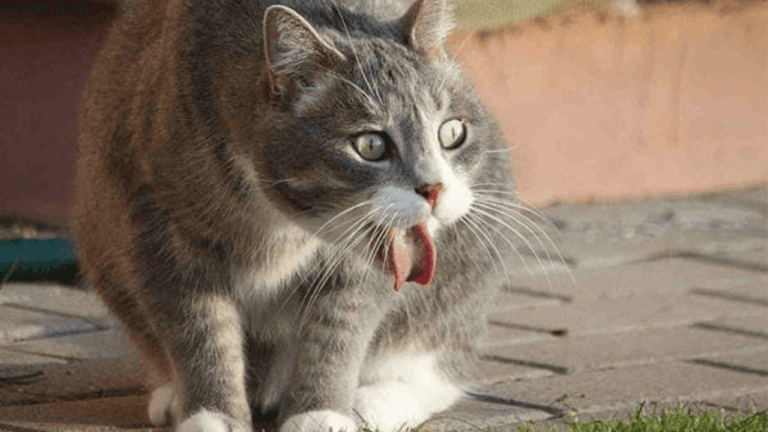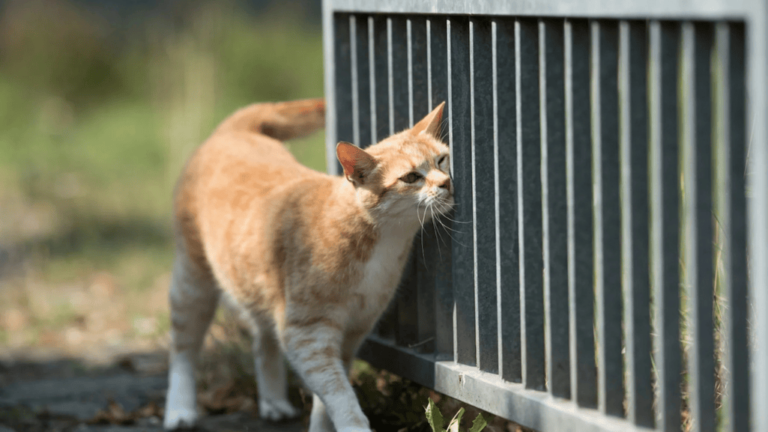As a responsible cat owner, keeping your feline friend healthy is key. One important part of cat care is making sure they get their vaccinations on time. The FVRCP vaccine is a must-have for this. It protects your cat from serious viruses, keeping them safe and healthy.
The FVRCP vaccine fights off three major cat diseases: Feline Viral Rhinotracheitis (FVR), Feline Calicivirus (FCV), and Feline Panleukopenia (FPL). By getting your cat vaccinated, you’re taking a big step to keep them safe from these diseases.
Whether your cat is a kitten or an adult, knowing about the FVRCP vaccine is vital. It’s important to follow the vaccine schedule to keep your cat healthy for years to come. Regular vet visits and learning about cat vaccines like FVRCP are key to caring for your cat.
Key Takeaways:
- The FVRCP vaccine is a core vaccine that protects cats from three serious viruses
- Vaccinating your cat with FVRCP is essential for their long-term health and well-being
- Kittens and adult cats both require the FVRCP vaccine as part of their preventive healthcare plan
- Regular vet visits and staying informed about feline vaccinations are important for responsible cat ownership
- The FVRCP vaccine helps reduce the risk of potentially life-threatening feline diseases
Understanding the FVRCP Vaccine
The FVRCP vaccine is a core vaccination for all cats. It protects against three serious diseases. This vaccine boosts your cat’s immunity, keeping them safe from respiratory diseases and other health threats.
What Does FVRCP Stand For?
FVRCP stands for three diseases the vaccine fights:
- Feline Viral Rhinotracheitis (FVR) – caused by the feline herpesvirus type 1
- Feline Calicivirus (C) – a common cause of upper respiratory infections
- Feline Panleukopenia (P) – also known as feline distemper
How the FVRCP Vaccine Works
The FVRCP vaccine contains live or inactivated virus strains. It makes your cat’s immune system ready to fight off future infections. The feline viral rhinotracheitis vaccine helps prevent severe upper respiratory disease.
The feline calicivirus vaccine protects against oral ulcerations and limping syndrome. The panleukopenia vaccine is key in preventing a contagious and often fatal disease. It affects rapidly dividing cells in the body.
The FVRCP vaccine is essential for your cat’s health. It keeps them safe from common feline diseases. Getting your cat this essential vaccination is key to responsible pet care. Regular boosters, as advised by your vet, keep your cat’s immunity strong and protect them from serious illnesses.
Diseases Prevented by the FVRCP Vaccine
The FVRCP vaccine is key for keeping cats healthy. It fights off three big dangers: feline viral rhinotracheitis, feline calicivirus, and feline panleukopenia. Vaccinating your cat keeps them safe and healthy for a long time.
Feline Viral Rhinotracheitis (FVR)
Feline viral rhinotracheitis is caused by the feline herpesvirus-1. It’s a big part of the upper respiratory infection vaccine for cats. Symptoms include:
- Sneezing and nasal discharge
- Conjunctivitis (eye inflammation)
- Fever and lethargy
- Loss of appetite
The rhinotracheitis virus vaccine guards cats against this contagious disease. It can cause serious breathing problems and even death.
Feline Calicivirus (FCV)
Feline calicivirus is a common upper respiratory infection in cats. The calicivirus vaccine is a key part of the FVRCP vaccine. Symptoms include:
- Oral ulcerations
- Nasal and ocular discharge
- Sneezing and coughing
- Lameness and joint pain
FCV can cause pneumonia and death in severe cases. Vaccination is vital for your cat’s health.
Feline Panleukopenia (FPL)
Feline panleukopenia, or feline distemper, attacks fast-growing cells in a cat’s body. It mainly hits the bone marrow and intestines. Symptoms are:
- Vomiting and diarrhea
- Dehydration
- Fever
- Lethargy and weakness
FPL can be fatal, mainly in young kittens. Vaccination is key for pet owners.
By getting your cat the FVRCP vaccine on time, you protect them from these serious diseases.
Vaccination Schedule for Cats
Keeping your cat up-to-date with vaccines is key for their health. The FVRCP vaccine is vital in fighting off common respiratory diseases like rhinotracheitis. Let’s look at the vaccination schedule for cats to ensure your pet stays healthy.
Kitten Vaccination Schedule
Kittens are very susceptible to diseases, so getting them vaccinated early is important. The FVRCP kitten vaccine is given in a series of shots, starting at 6-8 weeks. Here’s the kitten vaccination schedule:
- First dose: 6-8 weeks old
- Second dose: 9-11 weeks old
- Third dose: 12-14 weeks old
- Fourth dose: 16-18 weeks old
Adult Cat Vaccination Schedule
Adult cats need booster shots to keep their immunity strong. The frequency of these shots depends on your cat’s lifestyle and health risks. Generally, adult cats should get the FVRCP vaccine every 1-3 years, as advised by your vet.
Annual vet visits are key for checking your cat’s health and setting the right vaccination schedule for cats.
Booster Shots and Maintenance
Booster shots are vital for keeping your cat safe from diseases. They boost your cat’s immune system, keeping them strong against threats. Keeping up with your cat’s vaccine schedule is a big part of caring for them.
Following the cat vaccine schedule greatly lowers the risk of serious illnesses like rhinotracheitis and other cat respiratory diseases. Investing in core vaccines for cats is worth it for your pet’s health and happiness.
Side Effects and Risks of the FVRCP Vaccine
The FVRCP vaccine can cause side effects in some cats. Most of these are mild and don’t last long. But, it’s important for cat owners to know about these risks when thinking about feline vaccines.
Common side effects of the FVRCP vaccine include:
- Lethargy and decreased activity
- Mild fever
- Reduced appetite
- Localized swelling or tenderness at the injection site
These symptoms usually go away in a day or two. They don’t usually need medical help. But, if your cat has severe or lasting side effects, call your vet right away.
In rare cases, cats can have serious reactions to the FVRCP vaccine, such as:
- Allergic reactions (e.g., facial swelling, hives, or difficulty breathing)
- Injection site sarcoma (a type of cancerous tumor)
While severe reactions are uncommon, it’s important to discuss any concerns with your veterinarian before vaccinating your cat.
Even with risks, the FVRCP vaccine’s benefits are greater for most cats. It helps prevent serious diseases. Regular vet visits and keeping up with vaccinations are key for your cat’s health. They help protect against deadly infections and diseases.
Conclusion
The FVRCP vaccine is key to keeping your cat healthy. This feline vaccination guards against serious diseases like feline viral rhinotracheitis, calicivirus, and panleukopenia. These can lead to cat respiratory disease, stomach problems, and even death.
By sticking to the kitten vaccination schedule and getting booster shots for adult cats, you lower the risk of these diseases. This is vital for your cat’s health.
It’s vital to talk to your vet about the right vaccination plan for your cat. They consider your cat’s age, lifestyle, and health. While feline vaccine side effects are usually mild, watch your cat closely after the vaccine. Report any issues to your vet right away.
The benefits of the FVRCP vaccine are huge. It prevents serious illnesses and keeps your cat healthy for a long time. This is why it’s so important.
Understanding the FVRCP vaccine and keeping up with your cat’s shots is a big step. It ensures your cat stays happy and healthy. If you have questions about cat vaccinations cost, the kitten vaccine schedule, or the upper respiratory disease vaccine, talk to your vet. They can help make decisions that keep your cat safe from serious illnesses.


